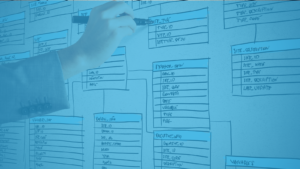Data scientist. Sounds sexy, doesn’t it? And it certainly can be. More than just being some sort of glorified calculator, data scientists are all about seeing the truth behind the numbers. Data scientists really are scientists in the purest form, using scientific methodologies and advanced analytics technology to distill large amounts of structured and unstructured data into actionable insights.
But getting there isn’t quite as easy as falling off a logarithm; it takes education and determination, and you’ll need to develop the right skills to make it happen. Want to know how to become a data scientist? Here are 10 essential skills you’ll need:
1- A good head for numbers.
Big data is exactly that: big. It incorporates large amounts of statistical data, and it is the job of the data scientist to turn that raw information into something coherent. And yes, you’ll have access to analytics tools and other resources to help you make sense of it all (no one’s going to expect you to be doing it all long hand), but even so, those with a talent for managing numbers may have a distinct advantage.
2- The ability to communicate effectively.
Understanding the numbers is only part of the data scientist’s job. To be able to put your findings to effective (and profitable) use, you need to be able to share them in a way that is clear and digestible, even to non data scientists. Presenting analytical solutions and recommendations to marketing and sales teams takes not only an in-depth understanding of the data itself, but also a clear grasp of the needs and goals of those departments. This means knowing how to craft a compelling story around your data, and what specific results and values are poised to have the greatest impact on the business.
3- A talent for teamwork.
With very few exceptions, no data scientist is an island. That means you’ll likely be working closely not only with a team of scientists, but also with decision makers and other departments. And this goes beyond simply knowing how to communicate; it’s about being able to collaborate with others and agree upon strategies, campaigns, workflow, etc. In fact, a large portion of your time will likely be spent meeting with everyone from company executives to the customers themselves. If you don’t work well with others, data science may not be for you.
4- Fluency in programming languages.
As far as concrete data-scientist qualifications go, there probably aren’t any as valuable to the aspiring data scientist than an in-depth knowledge of programming languages. You’ll use coding to develop specialized tools and systems, and the more you know, the better. Languages like SQL, Java, Scala, C++, Javascript, NodeJS, and Ruby (to name only a few) are all certainly valuable, but it’s suggested that the most common programming languages used in big data and computer science are R and Python. And while your needs are going to differ depending upon what area of data science you choose to specialize in, it’s fairly safe to say that a firm grasp of coding is absolutely vital to data science.

5- A familiarity with machine learning.
Throughout major companies and industries, big data and machine learning (also known as AI) have become inseparably connected. That’s because effective AI programs are able to analyze huge amounts of dynamic data on the fly, incorporating variables and producing efficient algorithms and data-driven models for real-time data processing. But even the best machine learning systems require assistance. If you understanding machine learning techniques will give you an advantage over those who are not familiar with this growing technology.
6- An eye for unstructured data.
Unlike the numbers inherent in structured data, unstructured data can feel very sloppy. That’s because unstructured data incorporates things like internet reviews, blog posts, videos, social media posts, and more. These variables don’t fit easily into database tables, but can still provide valuable insights. Data scientists need to be able to work effectively with various forms of unstructured data from across a variety of sources. This means being able to differentiate between usable and useless data, refine the data for storage, organize and retrieve said data, and (of course) analyze it effectively.
7- Industry understanding.
Although we may talk about data science as though it’s a single, unified field, the truth is that the role of a data scientist can vary greatly depending on their specific business and industry. As such, a data scientists need to be business professionals as well. You need to understand not only the data itself, but also how it relates to the bigger picture of your company. Know which problems are most pressing to your business, be able to identify new data opportunities, and always keep long-term company goals in mind. Without a big-picture mindset, data scientists may find themselves wasting time and effort focusing on the wrong insights.
8- Insatiable curiosity.
Do you enjoy puzzles? If so, that’s good. Peering beyond the numbers and seeing hidden cause-and-effect relationships is an ongoing puzzle for data scientists, and it takes no small amount of natural curiosity. But even more than that, data science as a field is constantly evolving. Successful data scientists know that they need to be just as dynamic, regularly improving their knowledge and keeping up with new breakthroughs and theories.
9- Unrelenting determination.
Just looking back over this list, it may seem like there are a lot of skills one would need to develop to make it as a data scientists… and that’s exactly the case. From coding proficiency, through fluency in business, to various interpersonal skills, the learning curve can be a difficult one. So, if you plan on pursuing data science as a career, you’ll need to decide early on that you’re not going to let setbacks get in your way. More than almost anything else, determination will help carry you toward your goal, and will continue to serve you when dealing with difficult data problems.
10- The right education.

With so much learning involved in becoming a data scientist, it’s probably no surprise that most data scientists have extensive schooling under their belts. Almost all have at least a four-year computer science degree, most have a Master’s degree, and many have PhDs. But while a diploma may be attractive to some employers, it’s not always the defining factor. There are other avenues for acquiring a computer science education, with coding school being one of the most effective. But whatever path you decide to take, recognize that your education doesn’t stop once you land a job. Learning and growing is an essential aspect of data science, and should be a central focus throughout your career.
Data science is a high-paying, high-demand field, and for those with the right aptitude, it can be as personally satisfying as it is lucrative. But getting there isn’t a walk in the park; you’ll need to develop the right technical and personal expertise. Thankfully, getting an education in data science may not be as difficult or as expensive as you might think. Check out DevMountain today, and lay a secure coding foundation to support your future data science career.
Want to learn more? Our story Big Data, Machine Learning, and Their Impact on the Software Development Industry takes you deeper into the role of big data and how data scientists can use machine learning in software development to enhance their work.







